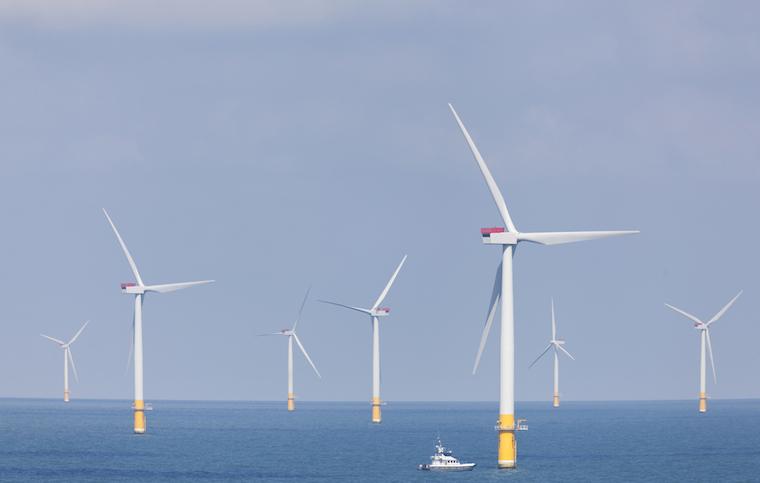A Texas-based group is asking the U.S. Supreme Court to reverse a federal appeals court ruling allowing a large offshore wind energy project.
The Texas Public Policy Foundation filed a petition for a writ of certiorari March 4 with the Supreme Court on behalf of local fishermen whose livelihoods have been severely impacted by the Vineyard Wind 1 offshore wind energy project, located off the coast of Massachusetts.
"The Biden Administration’s Departments of the Interior, Commerce and Defense knew that the Vineyard Wind 1 project would result in momentous adverse impacts to safety, the environment, endangered species and national security, but permitted it anyway, thereby violating the Outer Continental Shelf Lands Act and the National Environmental Policy Act,” said Ted Hadzi-Antich, senior TPPF attorney and lead counsel in the case. “This is a stark example of federal administrative agencies shirking their responsibilities to follow the law. When that happens, we are here to hold their feet to the fire.”
This is the first of dozens of such wind energy generation projects slated for development on the Atlantic, Pacific and Gulf coasts of the United States.
TPPF says it is part of an “ambitious initiative of the former Biden Administration to diminish demand for fossil fuels throughout the nation.” TPPF also says the Vineyard Wind 1 project was rushed through and approved despite environmental, safety and national security risks.
“Last July, TPPF’s warnings came true when an enormous windmill blade the size of a football field collapsed into the ocean, scattering fiberglass debris for miles and closing beaches on the East Coast,” the foundation said in a press release. “TPPF now turns to the Supreme Court as the court of last resort to fix the errors made by the lower court in approving this dangerous project.”
Petitioners in the case are Seafreeze Shoreside, Long Island Commercial Fishing Association, XIII Northeast Fishery Sector, Heritage Fisheries, Nat. W. and Old Squaw Fisheries.
In 2021, the federal government began approving dozens of wind energy generation projects in federal waters on the outer Continental Shelf off the Atlantic, Pacific and Gulf coasts. The petitioning companies challenged the Vineyard Wind 1 project approval as contrary to the texts of the Outer Continental Shelf Lands Act and the National Environmental Policy Act, saying the project would result in “momentous adverse impacts on marine navigation, public safety, the environment and national security.”
After a federal court ruled against the petitioners, the First Circuit Court of Appeals also rejected the challenge.
In their filing with the Supreme Court, the companies ask whether the First Circuit’s decision conflicts with last year’s Loper Bright v. Raimondo ruling, which requires courts to independently determine the meaning of federal statutes rather than deferring to agency interpretations. They also ask if the First Circuit’s decision conflicts with the 1986 ruling in La. Pub. Serv. Comm’n v. FCC, which held that “an agency literally has no power to act ... unless and until Congress confers power upon it.”
“In a rush to replace fossil fuels as this nation’s primary source of electricity, the federal government launched an aggressive, nationwide program to approve 30 gigawatts of offshore wind energy projects across all three American coasts by 2030,” the petition states. “To accomplish this enormous task, the Department of the Interior’s Bureau of Ocean Energy Management (“BOEM”) led a whole-of-government effort to approve as many offshore wind projects as possible as quickly as possible.”
The petitioners say the federal agencies acknowledged the project would harm safety, the environment and national security during the approval project, but the government permitted the project anyway “skirting their mandatory duties.”
“In the process, the federal respondents sidestepped their procedural duties under the National Environmental Policy Act,” the petition states. “This court’s recent decision in Loper Bright Enters. v. Raimondo … held that courts must ‘exercise their independent judgment in deciding whether an agency has acted within its statutory authority.’
“And this court previously held that ‘an agency literally has no power to act … unless and until Congress confers power upon it,’” citing the 1986 La. Pub. Serv. Comm’n v. FCC ruling as well as the 2022 West Virginia v. EPA ruling that said administrative agencies “have only those powers given to them by Congress.
“The First Circuit failed to adhere to those precedents and impermissibly deferred to federal respondents’ interpretations of OCSLA and NEPA, thereby creating conflicts between its ruling in the instant case and prior decisions of this court.”
TPPF is a non-profit free-market research institute based in Austin.
